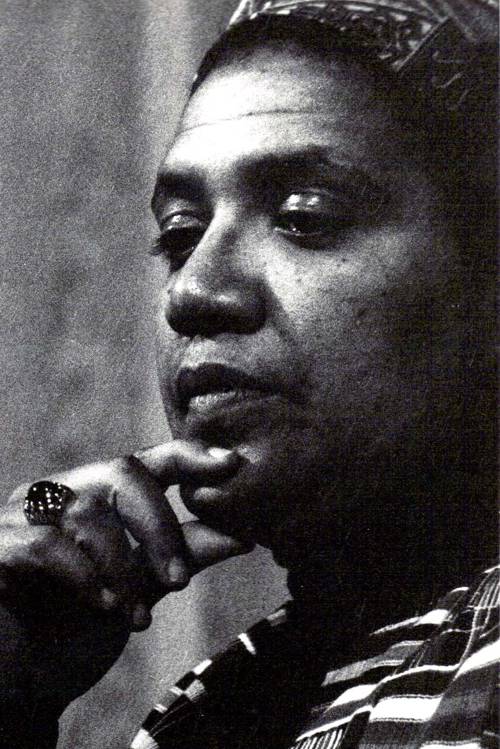
FAQ About Audre Lorde (Poet and Activist)

Who was Audre Lorde?
Audre Lorde was an American writer, feminist, womanist, librarian, and civil rights activist. She was born on February 18, 1934, and passed away on November 17, 1992. Lorde's work primarily explored issues of race, gender, and sexuality, with an emphasis on promoting social justice and equality.

What are some of Audre Lorde's most famous works?
Audre Lorde authored numerous influential works, including poetry collections such as "The Black Unicorn" and "Our Dead Behind Us", as well as prose works like "Sister Outsider" and "The Cancer Journals". Her writings earned her a prominent place in literary and activist communities.

What themes did Audre Lorde often explore in her writings?
Lorde frequently addressed themes of identity, intersectionality, civil rights, feminism, and social justice. She was particularly focused on the experiences of marginalized groups and encouraged an understanding of the interconnected nature of various forms of oppression, such as racism, sexism, and homophobia.

How did Audre Lorde contribute to feminism?
Audre Lorde was an influential voice in intersectional feminism, emphasizing the importance of including those who have been traditionally marginalized in feminist discourse. She highlighted the unique experiences of women of color and queer women, urging feminist movements to address the needs of all women, not just a select few.

What is 'The Black Unicorn'?
The Black Unicorn is a celebrated poetry collection by Audre Lorde, published in 1978. The collection is acknowledged for its powerful exploration of black female identity, spirituality, and cultural heritage. It's considered a seminal work in African-American and feminist literature.

What impact did Audre Lorde have on civil rights activism?
Audre Lorde was a vocal advocate for civil rights throughout her life. Her activism spanned various movements, including those for racial equality, LGBTQ rights, and gender equality. Her writings and speeches often called for solidarity among marginalized groups and for a concerted fight against oppressive systems.

What is the significance of Audre Lorde's work 'Sister Outsider'?
Sister Outsider is a collection of essays and speeches by Audre Lorde, published in 1984. The work is significant for its insightful critique of social injustices and its call for affinity amongst marginalized communities. It's frequently cited in discussions on feminism and intersectionality today.

How did Audre Lorde influence LGBTQ+ activism?
As a self-identified black lesbian writer, Audre Lorde's work was instrumental in highlighting the experiences of LGBTQ+ individuals, particularly queer women of color. Her writing and activism helped bridge gaps between racial, gender, and sexual identity movements, fostering greater inclusion and visibility within LGBTQ+ activism.

What were Audre Lorde's views on intersectionality?
Audre Lorde was a pioneer in what would later be called intersectionality. She emphasized the interconnectedness of social categories such as race, class, gender, and sexuality and critiqued any movements that failed to address this complexity. Her work advocated for more inclusive approaches to fighting oppression.

How did cancer influence Audre Lorde's writings?
After being diagnosed with breast cancer, Audre Lorde wrote The Cancer Journals, a work that is both a reflection on her personal experience with illness and a critique of societal perceptions of cancer and illness. This work further engaged with themes of survival, identity, and social justice.

What awards did Audre Lorde receive during her lifetime?
Audre Lorde received several awards recognizing her literary and activist work, including the American Book Award for Coal in 1988 and the Bill Whitehead Award for Lifetime Achievement from Publishing Triangle. Her contributions to literature and activism continue to be celebrated globally.

Where did Audre Lorde grow up?
Audre Lorde was born in Harlem, New York City, into a family of Caribbean immigrants. Her upbringing in this vibrant community informed much of her literary and activist work, allowing her to connect deeply with themes relating to diversity and cultural heritage.

What is Audre Lorde's legacy?
Audre Lorde's legacy is profound, influencing generations of writers and activists. Her work advocating for intersectionality, inclusivity in feminism, and the empowerment of marginalized voices remains impactful today. Institutions and awards named in her honor continue her commitment to social justice.

How did Audre Lorde describe her identity?
Audre Lorde described herself as "black, lesbian, mother, warrior, poet". This multifaceted identity was central to her work, as she sought to articulate and politicize the complex intersection of race, gender, and sexuality.

What are 'The Cancer Journals'?
The Cancer Journals is a poignant collection of prose by Audre Lorde that details her battle with breast cancer. Written between 1978 and 1980, the book combines personal narrative with societal critique, exploring themes of illness, healing, strength, and the fight for dignity.

What role did Audre Lorde play in academia?
Audre Lorde served as a faculty member at several universities, where she influenced countless students with her teachings on poetry and gender studies. Her academic work emphasized the importance of understanding intersectionality and advocating for social justice within educational institutions.

How did Audre Lorde's Caribbean heritage influence her work?
Lorde's Caribbean heritage deeply influenced her writing, providing a rich cultural backdrop for her exploration of identity and belonging. She often drew on her ancestry to address themes of colonialism, diaspora, and the resilience of black communities.

What famous quotes are attributed to Audre Lorde?
Audre Lorde is known for many powerful quotes, perhaps most famously "Your silence will not protect you" and "I am not free while any woman is unfree, even when her shackles are very different from my own". These quotes encapsulate her commitment to activism and solidarity.

Why is Audre Lorde considered a 'warrior poet'?
Lorde is described as a 'warrior poet' due to her fierce advocacy for social justice and her use of poetry as a means of political resistance. Her writings and speeches often challenge societal norms and encourage transformative change, embodying the spirit of both a warrior and a poet.

How did Audre Lorde address racism and sexism in her work?
Audre Lorde's work consistently challenged both racism and sexism, deconstructing the biases inherent in society. She highlighted the unique struggles faced by women of color and critiqued movements that failed to be inclusive of diverse identities. Her work has sparked crucial conversations about the need for holistic approaches to social justice.
